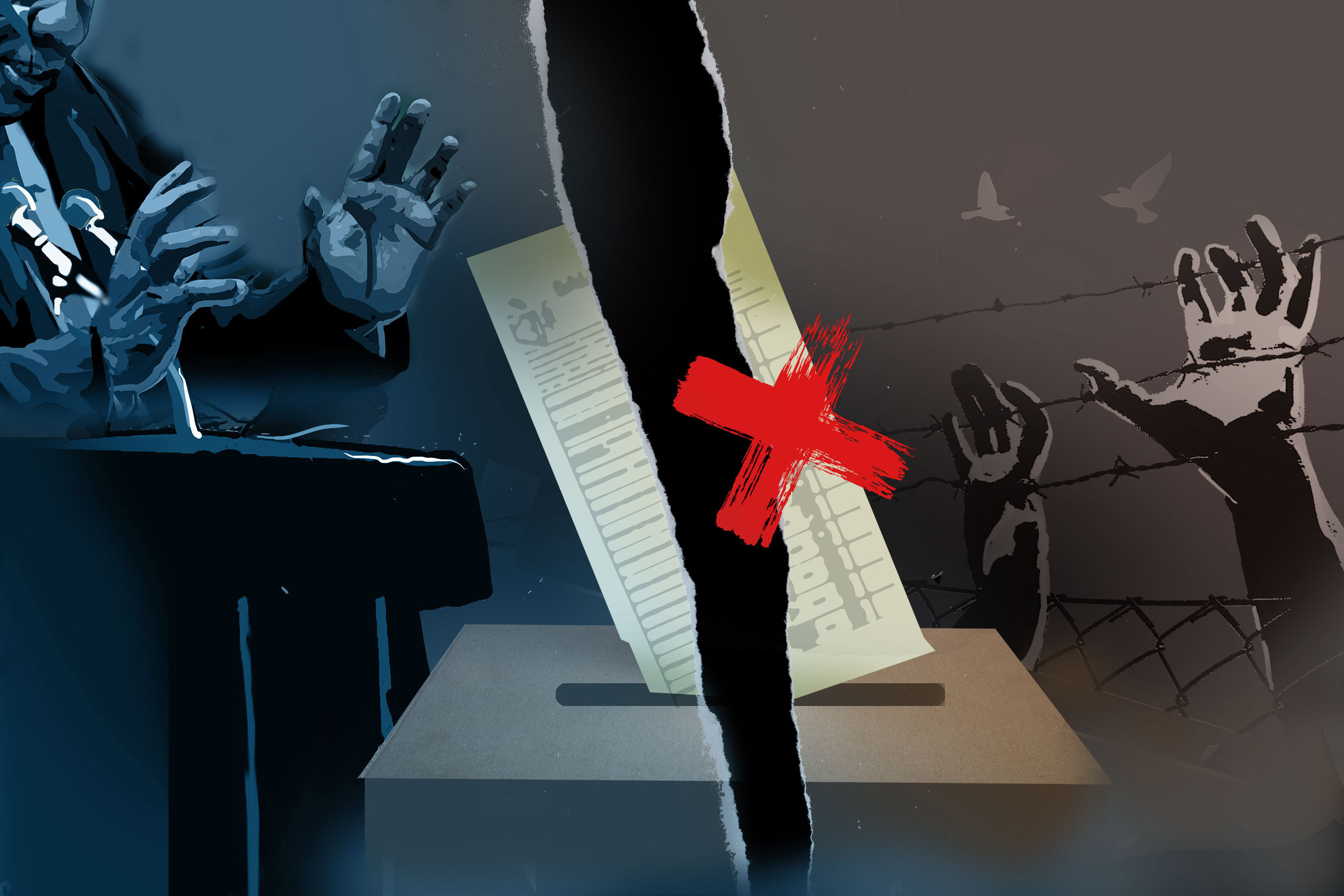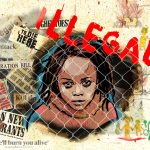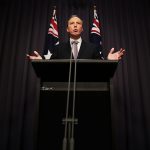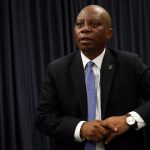Party politics sinks into the xenophobia gutter
As electoral politics veers to the right across the world, South African politicians follow with election promises focused on combating ‘illegal immigration’.
Author:
28 January 2019

Around the world, right-wing demagogues are contesting electoral power by using migrants as scapegoats for the devastation wreaked by capitalism. Elections have been won on this basis, and national norms and conversations have been shifted decisively to the right. The crude exploitation of social fractures, including race, gender, ethnicity, religion and caste, has driven the global rise of the right. But on a planetary scale, it is xenophobia and the attempt to project social fears and anxieties on to the figure of the migrant that has been at the centre of the turn to the right.
United States President Donald Trump and Brazilian President Jair Bolsonaro are among the most alarming examples of the rise of the new right. Trump has referred to Mexicans as “rapists” and Bolsonaro has reportedly called immigrants “the scum of Earth”.
In South Africa, the ruling ANC and the largest opposition party, the DA, have succumbed to gross and deeply irresponsible forms of opportunism.
Related article:
The ANC’s election manifesto declares that it will “expand the campaign to stop illegal trading in townships and villages, much of which is conducted by foreign nationals, with a view to promote and protect local ownership of grocery retail stores and other economic activities”.
It also promises “to secure our borders and stop illegal immigration” by “arresting, detaining and deporting those who repeatedly enter our country illegally”, and act to “ensure undocumented immigrants are regularised or assisted in leaving the country if they do not meet the criteria for remaining in the country”.
In a country in which there have been periodic attacks on migrants and people perceived to be migrants, usually carried out with impunity, both parties are engaging in culpably reckless conduct that could very well contribute to harassment, violence and even murder.
Internationalism has always been a foundational progressive value and the recourse to xenophobia by politicians seeking votes is deeply shameful.
Related article:
The concerns over sovereignty and security that are cited during these proclamations often lead to crude iterations of nationalistic language, which create the linguistic boundaries for an “us” and “them” to exist. Embedded in this doublespeak of “protecting our own” or “making our own nations great again” is a type of language that the great anticolonial thinker Frantz Fanon described as a “move from nationalism to ultranationalism to chauvinism and finally to racism”.
People who have been accused of and found guilty of forms of hate speech, such as racism, sexism and anti-Semitism, are beginning to face firm forms of punishment. But those who openly propagate xenophobic statements are able to spread their poison with impunity.
Herman Mashaba, the DA mayor of Johannesburg, has been particularly crude. Last year, in a move widely described as “Trumpian”, he “arrested” a trader who had been pushing a trolley of cow heads on the streets of Johannesburg and then proudly tweeted about the arrest and proclaimed that he was worried about “foreigners” bringing “Ebolas” into South Africa. DA Gauteng provincial leader John Moodey told New Frame that Mashaba “has removed the tweet, he has apologised. I support his apology. His is a real concern regarding the adherence to much-needed health regulations.”
Related article:
Mashaba recently published an opinion piece in the Sowetan in which he lamented how “illegal immigrants” undermine law and order in South Africa. He wrote: “Speaking frankly, the state of illegal immigration in South Africa is a disaster. We do not have borders in our country. People cross into the country through a border that is not properly policed. Don’t take my word for it, the South African Defence Force [sic] have said as much.”
In the same piece, Mashaba — evoking the typically right-wing move in which the presentation of crude prejudice is presented as a matter of free speech — bemoans that he has been criticised for such comments. He writes: “A nasty trend has taken root in our country in which anyone who dares to speak out against certain issues is publicly humiliated and dismissed. For merely lamenting the state of illegal immigration, I was labelled ‘xenophobic’, ‘afriphobic’ [sic] and ‘illiberal’. Inevitably, the merits of the argument then go undebated.”
It is true that Mashaba’s comments do follow on from one of the key issues raised during his party’s campaign launch. But in a city in which migrants have faced serious and at times lethal forms of xenophobic harassment and violence, they are gravely irresponsible.
The lives of impoverished migrants, particularly from elsewhere in Africa and Asia, count for little in the elite public sphere. Reports of migrant deaths and police harassment are rarely given serious consideration. Victims are generally unnamed or added to the general morass of “poor black life”.
Related article:
Xenophobia is not only a matter of periodic upsurges of popular violence, sometimes taking the form of pogroms. It is also a matter of state harassment, extortion, detention and violence. Take the government’s Operation Fiela, a “crime-busting” initiative begun in 2015 and relaunched in 2018 by then police minister Fikile Mbalula, another reckless demagogue.
Fiela, which means to “sweep” or “sweep away” in seSesotho, and its rebranded iteration Operation Fiela II, are state-led programmes. They treat the mere presence of migrants as part of a continuum of crime including drugs, illegal weapons and various acts of criminality as a set of urgent societal ills that need to be “cleaned up” by the state. The echoes with fascist language and thinking are unmistakable.
Last year, Health Minister Aaron Motsoaledi, who has presided over a catastrophic decline in the quality of public healthcare, tried to shift the blame for the crisis on to migrants, saying “our hospitals are full, we can’t control them … They have to be admitted, we have got no option — and when they get admitted in large numbers, they cause overcrowding, infection control starts failing.” Again, the echoes with the poisonous language of fascism are clear.
Motsoaledi is no outlier. Some weeks ago, ahead of this year’s annual ANC January 8 Statement, party treasurer general Paul Mashatile told Power FM: “When you have more people coming in, they choke your resources.”
Related article:
ANC secretary general Ace Magashule followed up on Mashatile’s remarks in an interview with City Press. He said the party had listened to the concerns of its constituents during door-to-door visits and made the issue of “illegal immigration” one of its key concerns. “This issue of undocumented foreigners was raised by the general society in South Africa. That is why the ANC wants to focus on it and deal with it once and for all,” Magashule told the newspaper. “If they are undocumented when crime happens, you can’t even get these people. You can’t get their fingerprints. [This is about] the safety of the country. It is not being opportunistic,” he said.
While Mashaba, Magashule, Mashatile, Mbalula and Motsoaledi could claim that their xenophobic statements are in line with the positions of their increasingly reactionary parties, the same is not true of the already seriously compromised trade union leader Zwelinzima Vavi. In a recent series of scurrilous tweets, Vavi made a number of grossly xenophobic and Islamaphobic statements. In response to criticism levelled against him, Vavi tweeted: “Any country that allows a situation where there is mass dumping of foreign goods whilst its critical sectors are being decimated with accompanying job loss blood bath, any country allowing all shops to be operated and owned by foreign nationals is not serious about the future [sic].”
One would have assumed that a trade unionist would express concern about the supermarkets that monopolise the bulk of the retail side of the food system in South Africa rather than turning on vulnerable migrants. But Vavi was unrepentant in the face of all the criticism levelled against him following his tweets.
Related article:
The trade union movement in South Africa, and much of the world, has an extraordinary history of principled internationalism. The founding document of the South African Federation of Trade Unions declares that “unions must fight for the maximum unity of all workers and reject all divisive and negative sentiment such as racism, xenophobia, tribalism and ethnicity, all of which are the product of the capitalist system which exploits divisions within the working class. We should welcome and recruit migrant workers.”
Vavi’s xenophobia places him in direct opposition to the founding principles of his own organisation, and the best aspirations and practices of the trade union movement in South Africa and internationally.
At the same time, a clutch of tiny new parties, such as the African Basic Movement (ABM) and the People’s Revolutionary Movement, both working in KwaZulu-Natal, are trying to gain traction by actively spreading xenophobic views over loudspeakers in areas such as uMlazi, Inanda and Ntuzuma. They are operating without fear of political and societal consequence.
Related article:
The claim that leaders who make xenophobic comments are merely responding to popular pressure is bogus. The popular is a contested space. Xenophobic views and and actions are certainly present. But there are also a number of grassroots organisations, some constituted by the most impoverished people in our society, that have taken consistent and active positions against xenophobia and in support of solidarity with migrants. Leaders with integrity should take principled positions and ally themselves with progressive sentiment and action.
As the political temperature rises in the lead-up to the elections in May it is vital that all progressive forces take a clear position against xenophobia wherever it festers. We need to put an end to the impunity that is being extended to the increasing normalisation of attempts to foment xenophobic attitudes.







